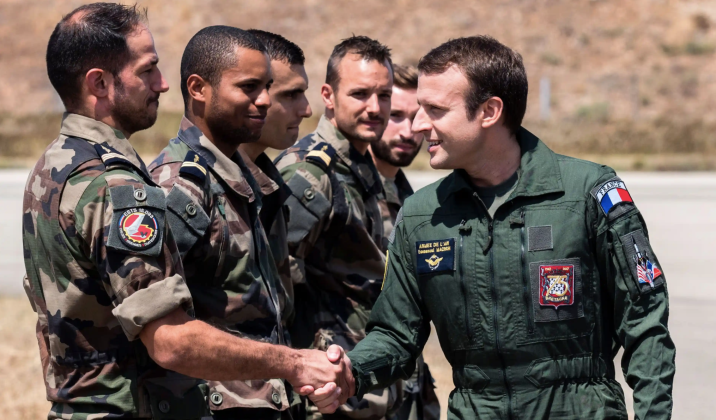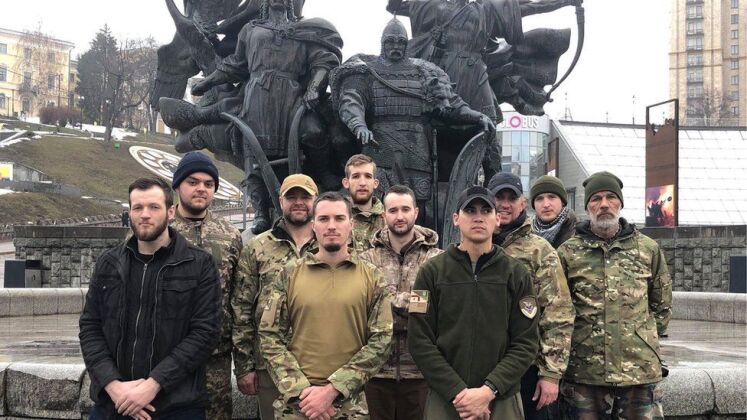News
France Considering New Ground Force Deployments to Ukraine to Stem Continued Russian Advances
The French government is currently considering new deployments of ground forces in Ukraine, according to a report by leading local newspaper Le Monde citing undisclosed sources. The number that would be dispatched was not disclosed, but could include both “conventional units” and special forces. The paper highlighted that missions could involve supporting Ukrainian air defence networks, although their most important role would be to impose “strategic dilemmas” for Moscow by acting as effective ‘human shields’ for Ukrainian targets. This would be intended to force Russian forces to hesitate to strike or advance into areas where the forces of a nuclear armed NATO state were known to be operating. As observed by Le Monde, “the presence of French soldiers or [those] of other nations would potentially protect certain areas of the Ukrainian territory.” It highlighted that this could be key to protecting sensitive targets related to the upcoming delivery of F-16 fighters to the country, which require significantly more support infrastructure and facilities than the MiG-29 and Su-27 fighters Ukraine currently operates, and are thus highly vulnerable to Russian drone and missile strikes. Although the F-16s being delivered are Cold War era models with obsolete avionics, they are expected to serve as valuable launch platforms for cruise missile strikes on Russian targets, while operating far behind the frontlines to avoid air to air combat.

Deployments of Western special and regular forces in Ukraine has been widely reported, the most notable example being the frontline combat operations of hundreds of British Royal Marines from the conflict’s initial weeks, which was confirmed by senior British military officials. Nevertheless, with these operations having been conducted with a degree of covertness, the deployment now being considered by France is expected to be widely announced for political purposes. The report on the possible deployments closely follows a statement by French President Emmanuel Macron on February 26 that his government “will do everything necessary to prevent Russia from winning this war,” with deployments of ground forces not being ruled out. The president highlighted at the time that much as other European states had ruled out provision of assets such as cruise missiles and fighter planes to Ukraine, only to later alter their positions, so too did he believe it was highly possible that they would come to reconsider overtly deploying ground forces in the country. Macron doubled down on his comments three days later, stating that they had been “thought through and measured.”

Macron’s statement follows serious Ukrainian setbacks and continued loss of territory as the country’s fighting capabilities rapidly diminish. Western sources on the ground have reported with growing frequency and seriousness that combat capabilities have been very seriously undermined in even the most elite frontline units by severe and fast worsening equipment shortages. For the equipment which has remained, Pentagon reports have highlighted Ukraine’s inability to maintain it, with the situation for maintenance of European equipment being significantly worse still. Alongside equipment issues, Ukrainian personnel speaking to Western media have consistently cited serious manpower shortages as a leading factor undermining their ability to continue fighting, with frontline units having been reported by Ukrainian sources to have taken tremendous casualties times at 80-90 percent of their fighting strength in 2023. The situation on the ground has added urgency to calls in the West for more direct intervention including ground force deployments to prevent what increasingly appears to be an inevitable Russian victory.

French military contractors are notably reported to already be deployed in Ukraine, with these and other European foreign fighters specifically targeted in a Russian missile strike on January 16, causing at least 80 casualties 60 or more of which were killed. Russian state media reported that these personnel were “highly trained specialists who work on specific weapons systems too complex for the average Ukrainian conscripts,” which “put some of the most lethal and long-range weapons in the Ukrainian arsenal out of service until more specialists are found” to replace them. Unlike active servicemen, strikes on contractors and volunteer fighters are considered far less politically risky, with such units having contributed significantly to Ukrainian operations since the outset of the war and taken significant casualties in the process. Russian contractors have similarly been targeted by U.S. forces in Syria, while Washington has otherwise been careful to refrain from targeting active duty Russian personnel in the country.












